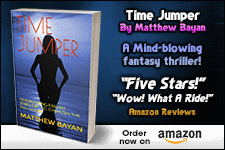Act First, Explain Later - Part 1
- by Matthew Bayan
- Oct 24, 2017
- 2 min read
"Act first, explain later." - James Scott Bell
I saw this on a blog and immediately thought, "Simple and brilliant." James Scott Bell is a bestselling author of help-me books for writers. He brings up the classic issue of Showing vs. Telling, as well as the ongoing argument between writers and agents/editors about Prologues.
As an editor, I usually have this argument (sorry, debate) with first-time writers. "The reader needs to understand the context," they say.
Let's be clear. World-building is important. But you don't need to build the world first and then populate it. The only book where that makes sense is the Bible. Whether you're writing a spy novel in Berlin or a futuristic sci-fi opus, the rules are the same.
SHOW, DON'T TELL.
Prologues are telling. 'Nuff said?
If you still cling to your prologue, consider this:
A classic example which most people can relate to is Star Wars. I happen to be of an age that I saw the first Star Wars movie (now dubbed A New Hope as the 4th in the series). This movie starts by telling us it happens long ago in a galaxy far, far away. We see a view of space, then a huge starship firing on a smaller ship. Cut to interior of the smaller ship and we see chaos and some woman named Princess Leia and two robots. Some big guy in black with a cape enters the ship and the princess ejects from the ship in some sort of lifeboat.
Do we know who the princess is or how important she is? No. Do we know how the big guy fits into the overarching story? No. Are the robots important? We don't know. In fact, we don't know anything other than the princess is being pursued by the big guy in a high-tech universe.
Over the course of the next half-hour, the background begins to fill in. The world-building slowly unfolds as we begin to understand who the main characters are, how they relate to each other, and what conflicts they're involved in. But note that the movie starts with people, not their world. We see action before we know context.
This is a perfect example of act first, explain later.
The main characters and their conflicts are what's important. Not the scenery.
In Part 2 of this article, I'll discuss the related issue of flashbacks and how to use them.
Please check out my latest novels. Just click on a cover below to teleport to Amazon.
The late, bestselling Sci-fi legend, A.C. Crispin, called TIME JUMPER “a mindblowing fantasy thriller.”
Author and critic, David Corbett, called THE FIRECRACKER KING "a wicked, marvelous book."
Caroline Leavitt, New York Times #1 bestseller, said, "I loved it!"













Comments